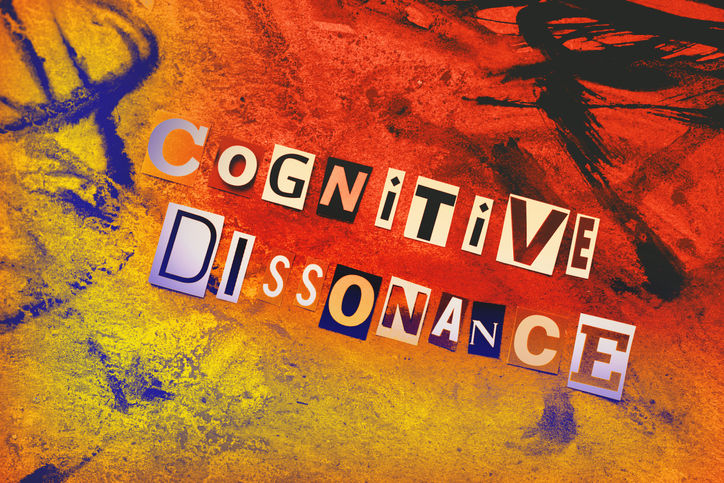Cognitive Dissonance in Decision Making: A Deep Dive into How Conflicting Beliefs Impact Choices
- Richard Johnson

- Aug 12, 2025
- 4 min read

Cognitive dissonance, a term coined by social psychologist Leon Festinger in 1957, refers to the psychological discomfort one experiences when holding two or more conflicting beliefs, values, or attitudes simultaneously. It manifests itself most tangibly in situations where personal beliefs clash with reality or actions. This discomfort can significantly impact our decision-making processes, often leading us to act in ways that might seem irrational or contrary to our self-interest.
When we encounter cognitive dissonance, our mind actively seeks to reduce the tension between our conflicting beliefs and reconcile the inconsistency. For instance, if a person highly values health and fitness, but also enjoys consuming junk food, they may experience cognitive dissonance. The psychological discomfort this creates might push them to alter their beliefs or actions—perhaps by convincing themselves that they need a 'cheat day' from their diet, that one unhealthy meal won't make a difference, or even that some junk foods aren't that unhealthy after all.
Such mental gymnastics are our attempts to restore cognitive consistency and equilibrium, as our minds inherently desire harmony and coherence in our beliefs, attitudes, and behaviours. We will go to considerable lengths to reduce cognitive dissonance, whether that means changing our beliefs, acquiring new information to support our views, or minimising the importance of the conflict.
This dynamic plays a critical role in decision-making, especially when it comes to challenging situations or significant life choices. Cognitive dissonance can impede our ability to make objective decisions, clouding our judgment and prompting us to make choices based on alleviating discomfort rather than logic, facts, or personal values. Cognitive dissonance is why we often find it easier to continue with a wrong decision or a poor course of action, rather than confront the reality of our mistake and face the psychological discomfort it brings. This is often referred to as 'sunk cost fallacy,' where one continues a behaviour or endeavour as a result of previously invested resources, such as time, money, or effort.
Cognitive dissonance isn't just an intriguing psychological phenomenon; it also holds profound implications for our emotional health. Living in a state of constant cognitive dissonance can lead to chronic stress, anxiety, and low self-esteem. It's akin to being in a perpetual state of internal conflict. Therefore, understanding and addressing cognitive dissonance is vital for mental well-being.
Research indicates that our brains are hardwired to experience discomfort when confronted with cognitive dissonance. Neuroimaging studies have shown that cognitive dissonance activates regions of the brain involved in conflict monitoring and negative affect, reinforcing the theory that cognitive dissonance is an aversive state that individuals strive to reduce.
In terms of societal implications, cognitive dissonance can shape collective decision-making and group behaviour, playing a role in phenomena like groupthink, public opinion shifts, and even political polarisation. It drives individuals to seek out like-minded people and information that confirms their existing beliefs, leading to echo chambers and the intensification of social and political divisions.
However, it's not all negative. Cognitive dissonance can be a catalyst for personal growth and self-improvement. The discomfort it creates can stimulate critical thinking and self-reflection, motivating individuals to reassess their attitudes and behaviours and move towards greater cognitive consistency. It's often an essential precursor to meaningful personal and societal change.
Addressing cognitive dissonance requires self-awareness, honesty, and courage. It involves acknowledging the inconsistency in our beliefs or behaviours and then either modifying our beliefs or changing our actions to restore cognitive harmony. While it may be uncomfortable, this process can lead to more accurate perceptions of the world, better decision-making, and enhanced emotional well-being.
In the realm of decision-making, understanding cognitive dissonance provides valuable insights. It reminds us that our decisions are not always as rational as we think and that our emotions play a critical role in our choices. By recognising when cognitive dissonance might be swaying our decisions, we can strive to make choices that are more consistent with our values and objectives and, ultimately, lead more congruent and fulfilling lives.
Cognitive dissonance is a pervasive force shaping our beliefs, behaviours, and decision-making processes. While it can lead to stress and poor decisions, it also has the potential to spur personal growth and improve decision-making. Understanding cognitive dissonance, its implications, and how to navigate it is essential for making informed decisions and fostering emotional well-being polarisation.
Taking the Next Step in Understanding Cognitive Dissonance
Recognising cognitive dissonance is just the beginning. The real transformation happens when you learn to identify it in yourself and others, understand its underlying causes, and apply practical strategies to resolve it. Whether you are making personal lifestyle changes, supporting clients through behaviour change, or working in a professional health and wellbeing role, mastering this skill can dramatically improve decision-making, motivation, and long-term success.
At Active Health Group, we teach evidence-based techniques for behaviour change and mindset shifts as part of our Health Coaching training programmes. These courses not only deepen your knowledge but also give you practical tools to help others navigate the very conflicts that cognitive dissonance creates.
If this topic resonates with you, we invite you to explore our accredited Health Coaching programmes – Ideal if you want to guide others through complex decisions that impact health and wellbeing.
Your next decision could be the one that aligns your beliefs, actions, and goals—creating clarity, confidence, and meaningful change.
.png)




Comments